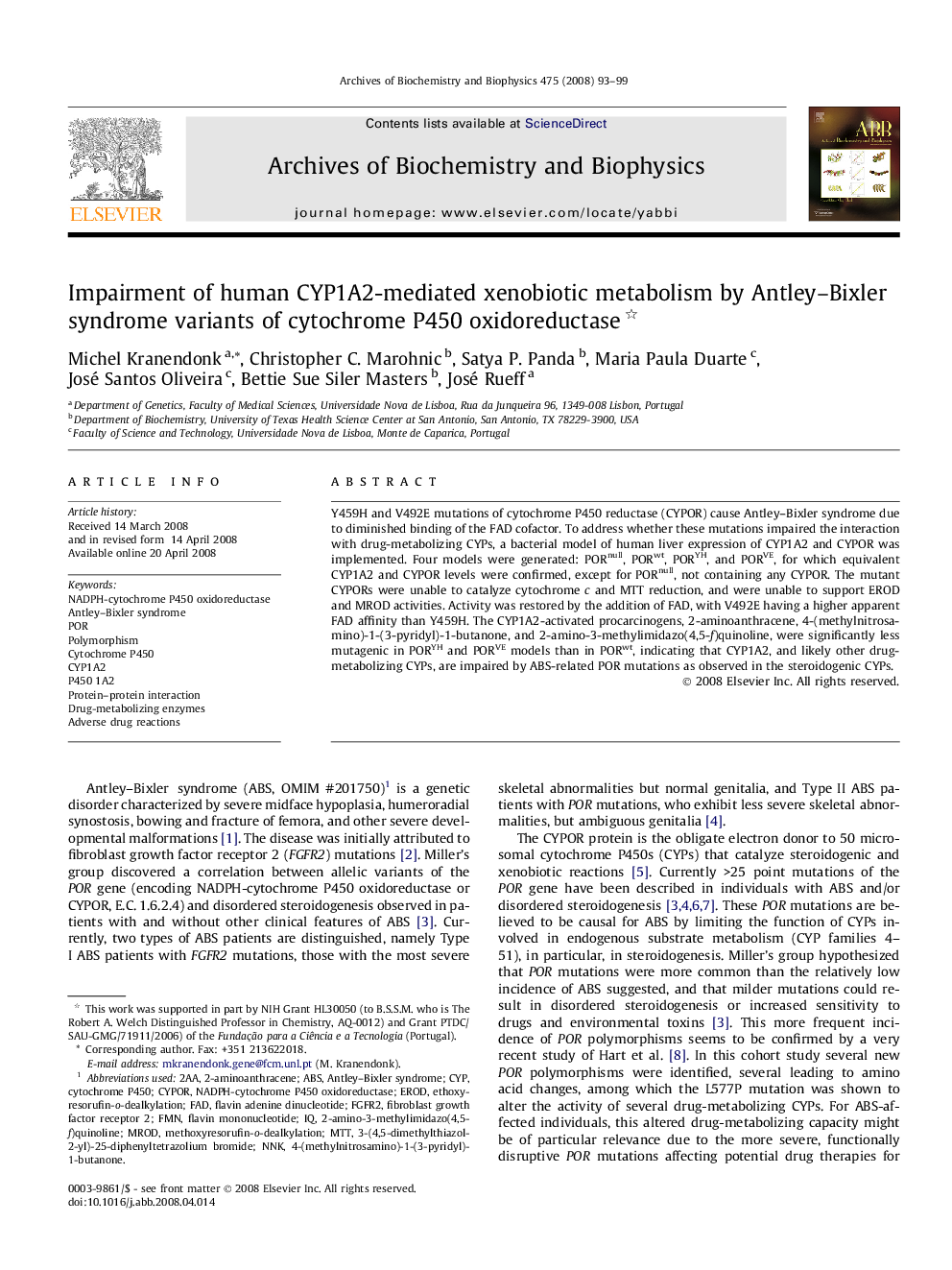| کد مقاله | کد نشریه | سال انتشار | مقاله انگلیسی | نسخه تمام متن |
|---|---|---|---|---|
| 1926713 | 1536475 | 2008 | 7 صفحه PDF | دانلود رایگان |

Y459H and V492E mutations of cytochrome P450 reductase (CYPOR) cause Antley–Bixler syndrome due to diminished binding of the FAD cofactor. To address whether these mutations impaired the interaction with drug-metabolizing CYPs, a bacterial model of human liver expression of CYP1A2 and CYPOR was implemented. Four models were generated: PORnull, PORwt, PORYH, and PORVE, for which equivalent CYP1A2 and CYPOR levels were confirmed, except for PORnull, not containing any CYPOR. The mutant CYPORs were unable to catalyze cytochrome c and MTT reduction, and were unable to support EROD and MROD activities. Activity was restored by the addition of FAD, with V492E having a higher apparent FAD affinity than Y459H. The CYP1A2-activated procarcinogens, 2-aminoanthracene, 4-(methylnitrosamino)-1-(3-pyridyl)-1-butanone, and 2-amino-3-methylimidazo(4,5-f)quinoline, were significantly less mutagenic in PORYH and PORVE models than in PORwt, indicating that CYP1A2, and likely other drug-metabolizing CYPs, are impaired by ABS-related POR mutations as observed in the steroidogenic CYPs.
Journal: Archives of Biochemistry and Biophysics - Volume 475, Issue 2, 15 July 2008, Pages 93–99